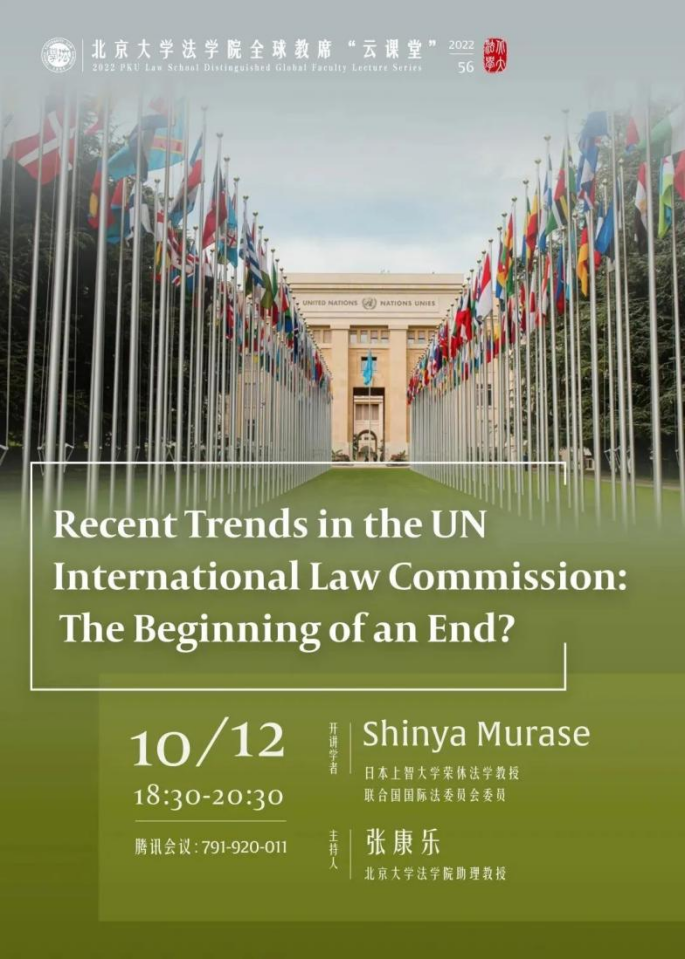Shinya Murase: United Nations International Law Commission: "The End" or New Development?
Date:2022-10-18
On October 12, 2022, Shinya Murase, Global Chair of Peking University Law School, Sophia University Professor Emeritus, and member of United Nations International Law Commission, gave an online academic lecture on the theme of "New Trends in United Nations International Law Commission: 'The End' or New Development?" The lecture was hosted by Zhang Kangle, Assistant Professor of Peking University Law School, with Chen Yifeng, Associate Professor of Peking University Law School, and Huang Yuxiang, Ph.D. student of Oxford Law School as the lecture assessors. More than 300 teachers and students participated, and the activity was warmly responded to.

Shinya Murase:
United Nations International Law Commission was originally composed of only 15 members, and all 15 members were scholars. Although the composition of the International Law Commission has expanded to 34 members, the proportion of members who are scholars has dropped to less than one-third. As a result, the quality of the Commission's work has declined. Moreover, the International Law Commission is supposed to be a body issuing draft articles, but at the moment, it is constantly issuing guidelines, principles and conclusions. Specifically, the problems facing the International Law Commission include the following: First, the membership. Second, the problem of working methods. Third, the problem of selected topics for the work.
Huang Yuxiang:
I completely agree with Professor Shinya Murase about the dilemmas facing the International Law Commission, but I would like to discuss the prospects of the International Law Commission from a relatively positive perspective. I believe that the significance of the International Law Commission in the settlement of international disputes has gradually become apparent.
First, the International Law Commission helps to unify the interpretation of international law; Secondly, the International Law Commission's work has improved the efficiency of justice, especially in the area of identification of customary law; Thirdly, the relevant opinions of the International Law Commission have been attached importance to by international courts in practice. The work of the International Law Commission can be regarded as a medium with which to eliminate the judicial division in the area of public international law.
Chen Yifeng:
Professor Shinya Murase has made important contributions to the work of the International Law Commission. The International Law Commission is now faced with many challenges and difficulties. One of them is the problem of fragmentation. States are increasingly inclined to refer specific issues to specialized international organizations, bypassing the International Law Commission. The second is the trend of deformalism in international law. Many pressing issues in the international community are more and more exempt from formal conventions, making multilateral conventions, as the traditional form of legislation, less favored by States. Third is the relationship between the International Law Commission and the Legal Committee of the United Nations General Assembly.
Translated by: He Lin
Edited by: Chen Hong



